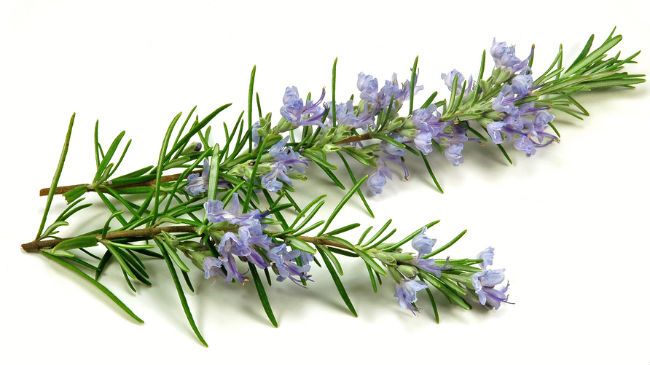Rosmarinus officinalis, familiarly called Rosemary, is an aromatic herb originating from the Mediterranean region. It was known as the “herb of remembrance.” Rosemary is the most written-about herb ever, and is even indirectly mentioned in the Holy Bible as the bush Mary covered her son, Jesus, with when they fled to Egypt. Perhaps where the name “Rosemary” came from. Aside from this, the herb is packed with tons of benefits that benefit your hair, skin, and overall health.
More: Top 20 Carrier Oils for Hair
Reduces Dandruff
Rosemary works well for skin conditions. That includes your scalp, which is why there are many clarifying shampoos with Rosemary oil. It helps balance natural oils in your scalp.
Fights Wrinkles
Steep Rosemary into hot water to get the antioxidant benefits. The vitamin, iron, and calcium support collagen levels. It also contains manganese which minimizes the appearance of wrinkles.
Kills Bacteria
Used topically, Rosemary oil kills bacteria, fungi, and skin viruses on minor wounds.
Restores Lackluster Hair
Just a few drops applied directly to your scalp repairs lost moisture.
Calms Achy Joints
Rosemary oil is often used directly onto problem joint areas. If your wrists are hurting after a long work day, dab a few drops on for almost instant comfort from the pain.
Heals Scars
Rosemary oil promotes healthy skin healing through stimulating the cells and circulation. This makes it a great topical oil for acne, eczema, and psoriasis, too.
Prevents Baldness
Studies have shown that 2mg of Rosemary leaf extract on a daily basis acts as a formula towards rapid hair growth and re-growth.
Speeds up Digestion
When used medicinally, Rosemary has been proven to speed up fat digestion.
Improves Vision
A few leaves of Rosemary contains Vitamin A, which is needed for optimal eyesight.
Important note
Like other essential oils, note that Rosemary must be diluted with a carrier oil before being used topically. Check with your physician before consider taking this as a supplement or putting it on your body. For topical use, it is suggested that you don’t exceed using 6 to 10 percent of an essential oil on the given area per day.
Read more: 5 Ways to Use Lavender Oil

